Feature Story
New Year, New Website: Fresh Resources for Your Community
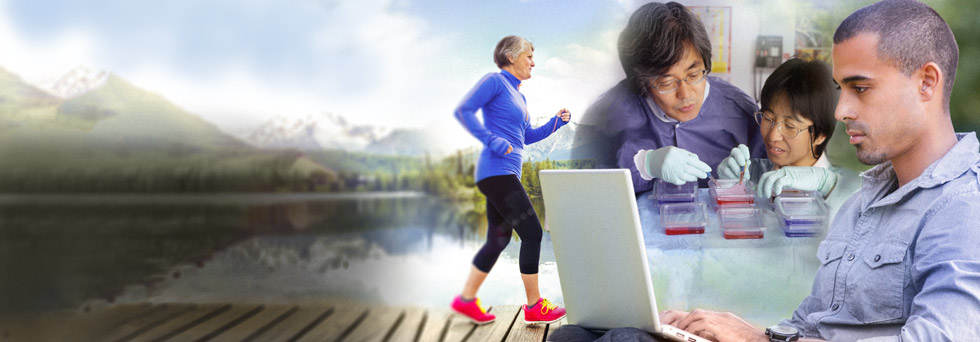
Visit the new NIAMS redesigned website to find reliable health information even faster! The new site uses a responsive design so that it can be easily viewed on a phone, tablet or computer. The Health Topics are listed in an A-Z directory and by general categories. Many topics are also available in Spanish, Chinese, Korean and Vietnamese.
Some of the new features include:
- Health Topics that are available in modules with featured sections, such as symptoms, causes and treatment, to allow quick access to the most relevant information.
- Health modules that can be downloaded as PDF or EPUB files.
- A new search feature that provides faster, easier search capabilities.
Please contact us with your questions or comments about the new site. We hope it helps you make your health outreach efforts a success.
News and Events
NIAMS Seeks Summer Interns
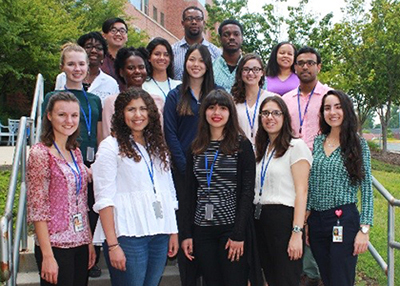 The summer program at the NIAMS provides an opportunity for students to spend a summer working side by side with some of the world's leading scientists in an environment devoted exclusively to biomedical research. Outstanding opportunities exist for high school, undergraduate, graduate and medical students contemplating careers in biomedical research or academic medicine. The deadline to apply is March 1, 2018.
The summer program at the NIAMS provides an opportunity for students to spend a summer working side by side with some of the world's leading scientists in an environment devoted exclusively to biomedical research. Outstanding opportunities exist for high school, undergraduate, graduate and medical students contemplating careers in biomedical research or academic medicine. The deadline to apply is March 1, 2018.
Image: 2017 summer interns with Robert Walker, Ph.D., Chief of the NIAMS Career Development and Outreach Branch (center, back row), and Stephanie Mathews, Ph.D., Scientific Program Manager (right, back row).
February Is African American History Month
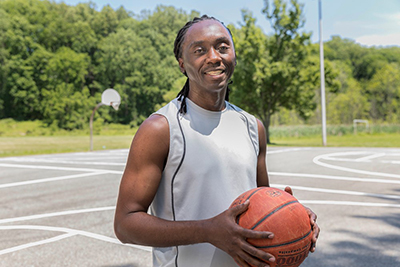 African Americans might have an increased risk for certain health conditions, such as osteoarthritis, lupus and severe forms of scleroderma. To help us observe African American History Month, take some time and learn more about the health issues that affect African Americans. Share what you learn with your community to help them improve their health and minimize risks.
African Americans might have an increased risk for certain health conditions, such as osteoarthritis, lupus and severe forms of scleroderma. To help us observe African American History Month, take some time and learn more about the health issues that affect African Americans. Share what you learn with your community to help them improve their health and minimize risks.
Volunteers Needed for Clinical Studies in Lupus
 Systemic lupus erythematosus is an autoimmune disease that involves many systems and organs of the body. Symptoms can include fever, joint pains and rashes. Lupus can also damage organs like the kidneys, lungs or brain. Medications used for lupus can have serious side effects, and the medications do not help some people. Researchers want to find new, more effective and safe treatments.
Systemic lupus erythematosus is an autoimmune disease that involves many systems and organs of the body. Symptoms can include fever, joint pains and rashes. Lupus can also damage organs like the kidneys, lungs or brain. Medications used for lupus can have serious side effects, and the medications do not help some people. Researchers want to find new, more effective and safe treatments.
Role of PPAR-y Agonists in Systemic Lupus Erythematosus
The purpose of this study is to assess the effects of a commonly used diabetes medication on lupus disease activity. Investigators are testing how this medication can improve blood vessel function and reduce inflammation in people with lupus.
Vascular Study of Lupus Patients
Lupus patients have an increased risk of developing heart attacks and stroke due to hardening of the arteries (atherosclerosis). By examining how their blood vessels function and whether they are damaged and by comparing these tests to those of people without lupus, scientists will be able to better understand what triggers this complication in lupus and hopefully identify potential strategies to prevent this damage.
Aerobic Exercise in Women With Systemic Lupus Erythematosus
With this study, investigators are interested in exploring the effect of aerobic exercise (running on a treadmill) on lupus activity and its biomarkers, in women. The study lasts for 12 weeks and requires 3 exercise visits per week. This trial is open to women with mild to minimal lupus activity who report high levels of fatigue, or feel that fatigue is one of the primary manifestations of their lupus.
New! Online Health Disparities Resource
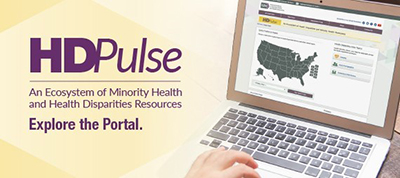 The National Institute on Minority Health and Health Disparities (NIMHD) has a new online resource: HDPulse: An Ecosystem of Health Disparities and Minority Health Resources. HDPulse consists of two easy-to-use portals: A Data Portal and an Intervention Portal (forthcoming in fall 2018). The Data Portal helps public health professionals and researchers identify, track and study issues related to health disparities, and the Intervention Portal will offer evidence-based interventions to improve minority health and health disparities.
The National Institute on Minority Health and Health Disparities (NIMHD) has a new online resource: HDPulse: An Ecosystem of Health Disparities and Minority Health Resources. HDPulse consists of two easy-to-use portals: A Data Portal and an Intervention Portal (forthcoming in fall 2018). The Data Portal helps public health professionals and researchers identify, track and study issues related to health disparities, and the Intervention Portal will offer evidence-based interventions to improve minority health and health disparities.
Featured Resources
 Are you planning outreach efforts or community events this year? The resources below can be found on our Community Outreach Initiative site and can help you educate your patients and community members about bone, joint, muscle and skin health.
Are you planning outreach efforts or community events this year? The resources below can be found on our Community Outreach Initiative site and can help you educate your patients and community members about bone, joint, muscle and skin health.
NEW! Access Health Topics on the Go
 Whether you are at home, at work or on the go, you can visit our Health Topics page to explore information on numerous diseases and conditions that are:
Whether you are at home, at work or on the go, you can visit our Health Topics page to explore information on numerous diseases and conditions that are:
- Organized in an A-Z directory and by category.
- Offered in a “Basics” version, which provides essential facts, and an “In-Depth” version, which provides more details.
- Available in multiple languages in a new, mobile-friendly view so you can access health information anywhere.
Social Media Tools for Your Community
 Do you share health information on social media? The NIAMS has an E-Toolkit with easy-to-use resources for social media and other communication channels to improve the health of the people in your community.
Do you share health information on social media? The NIAMS has an E-Toolkit with easy-to-use resources for social media and other communication channels to improve the health of the people in your community.
Be sure to check back often for new tools!
Health Info That Speaks Your Language
 Did you know? In addition to having easy-to-read information available in several languages, we have information specialists that are available Monday through Friday, from 8:00 a.m. to 5:00 p.m. Eastern Time, to answer your questions. You can contact us in the language of your choice.
Did you know? In addition to having easy-to-read information available in several languages, we have information specialists that are available Monday through Friday, from 8:00 a.m. to 5:00 p.m. Eastern Time, to answer your questions. You can contact us in the language of your choice.
Sharing Patient Stories To Promote Diversity in Clinical Trials
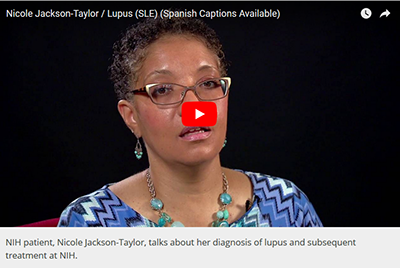 Clinical trials can be difficult to understand, making it a hard topic to educate others about. Clinical trials, part of clinical research, look at new ways to prevent, detect or treat disease. They lead to medical breakthroughs that help improve people’s health and quality of life. But many people don’t participate in clinical trials for various reasons—fear, lack of trust or lack of awareness, to name just a few.
Clinical trials can be difficult to understand, making it a hard topic to educate others about. Clinical trials, part of clinical research, look at new ways to prevent, detect or treat disease. They lead to medical breakthroughs that help improve people’s health and quality of life. But many people don’t participate in clinical trials for various reasons—fear, lack of trust or lack of awareness, to name just a few.
Our Clinical Research page collects resources such as infographics, videos and links to helpful places to learn more about clinical trials and how to educate members of your community about them.
The Clinical Trials and You page provides an overview of clinical trials, including registry lists, personal stories and information on how to help raise public awareness of clinical trials.
You can also view videos from patients that have benefited from participating in clinical research here.
